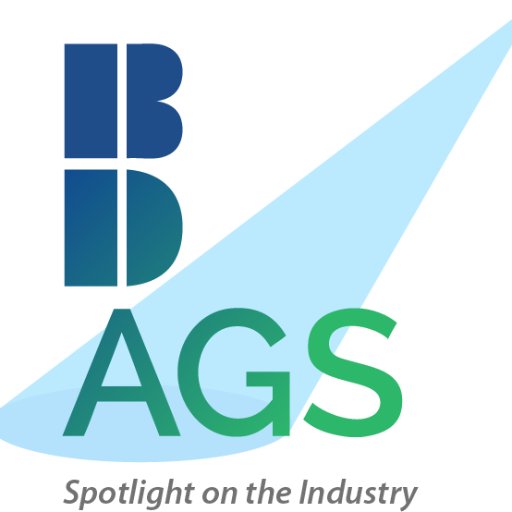The AGS is pleased to announce details of Members’ Day 2016, which is taking place on Thursday 7th April 2016 at the prestigious Barbican Centre in London.
This full day seminar will see a number of industry experts present on topics unique to their experience and expertise. This year we’re pleased to confirm presentations on subjects including the Shape of the Geotechnical Engineering Industry in 2025, Assessment and Management of Unexploded Ordnance Risk in the Marine Environment, The Accelerated Programme for the Moorgate Shaft, Geosynthetics, and Geodata Management on the HS2 Project so Far.
Full details of this year’s speakers can be viewed AGS Members’ Day Programme 2016
This year’s event is open to both Members and non-Members of the AGS. To confirm your attendance, please complete the AGS Members’ Day registration form and return it to ags@ags.org.uk before Friday 25th March. There is no cost for AGS Members to attend Members’ Day, however Non-Members will be required to pay £85 (plus VAT) per delegate.
Lunch and refreshments will be provided. Please note that registration forms received after Friday 25th March will not be accepted.
The AGS are pleased to announce that the following companies have sponsored this years event;
ALcontrol Laboratories is Europe’s largest independent provider of accredited laboratory testing services for the environmental industry, with over thirty years of global experience. They provide a range of tests including the following: TPH, PAHs, VOCs, phenols, PCBs, pesticides, metals and WAC testing.
www.alcontrol.com
ALS Environmental is a world-class analytical testing company supplying a wide range of expert services to the remediation and investigation markets. As an organisation ALS can provide you with UKAS and MCERTS accredited laboratory testing, in-field, real-time analysis and OnSite monitoring including sampling and Environmental Field Chemists.
www.alsenvironmental.co.uk
CH2M Tunnels and Earth Engineering teams work globally, designing and building infrastructure, underground space and natural resource solutions on behalf of our clients. Technology, innovation and delivery are key, as we integrate our strongest capabilities and experts from across the company to solve complex problems, add value and reduce risk.
www.ch2m.com
Concept specialises in the geotechnical, geoenvironmental and structural site investigation sector. We were formed some 18 years ago. Since formation we have grown to occupy a prominent role in our sector. In 2014 Concept were awarded both the prestigious Ground Engineering Award for the Best Ground Investigation Specialist in the UK and also the ICE London Civil Engineering Award for Greatest Contribution in recognition of the quality of the service we provide.
www.conceptconsultants.co.uk
Derwentside Environmental Testing Services offer a wide range of high quality accredited analytical testing services for the environmental, construction, waste, fuel and engineering industries. Our range of testing services cover the analysis of Land, Groundwater, Effluents, Waste & Gases, Fuels & Biomass, and Asbestos.
www.dets.co.uk
Dunelm Geotechnical & Environmental Ltd have 50 years’ experience as leaders in the field of ground investigation. Having complete accreditation for Quality, Environment and Health and Safety, our clients are afforded a first class service. Our highly qualified, experienced staff and in-house drilling services deliver an efficient and flexible service to all our clients.
www.dunelm.co.uk
ELAB specialises in the testing of soil, water and leachate samples as well as providing environmental monitoring equipment hire. Our analytical services cover inorganics and organics analysis, geotechnical chemical testing, metals analysis, as well as asbestos identification/quantification, waste characterisation testing and waste acceptance criteria (WAC). ISO 17025 accredited laboratories.
www.elab-uk.co.uk
Envirolab provides laboratory services spanning a broad organic and inorganic portfolio. Our reputation for excellence is built on continually providing our clients with reliable results delivered on time and within budget. Our UKAS and MCERTS accreditations guarantee our commitment to quality. We are the utterly reliable analytical laboratory.
www.envlab.co.uk
Incorporating Equipe Training and Equipe Geosolutions, the Equipe Group are at the forefront of the sustained development and growth of the geotechnical and drilling sectors. Equipe Training offer NVQs, industry specific Health and Safety training, along with geotechnical and drilling courses, whilst Equipe Geosolutions provide new, ground-breaking technologies such as KeyLogbook and SAFER-G.
www.equipegroup.com
Fugro is a leading international provider of geo-intelligence and asset information. Geotechnical capability includes a full range of terrestrial and marine in situ and laboratory based ground investigation services supported by a comprehensive geospatial and consultancy capability.
www.fugro.com
Geolabs Limited are a wholly independent testing-only company, providing soil, rock and aggregate laboratory testing services since 1995. Geolabs ensure a high quality, UKAS accredited service, for a wide range of tests with staff having a combined total of 400+ years of testing experience.
www.geolabs.co.uk
Geotechnical Engineering Limited was incorporated in 1961 and remains the largest privately owned ground investigation contractor in the UK. We provide an integrated service of utility surveying, drill rigs, insitu testing, laboratory testing and engineering services.
Our large fleet of drill rigs includes our in-house developed slope climbing P45s, P60s and P45K rigs, providing quality site data to the construction industry.
www.geoeng.co.uk
In Situ Site Investigation Ltd is a specialist geotechnical and geo-environmental site investigation company, which specialises in the use of Cone Penetration Testing (CPT) techniques and other related pushing technologies. We also offer a full range of pressuremeter testing services including cone pressuremeter, self-boring pressuremeter and high pressure dilatometer.
www.insitusi.com
Soil Engineering Geoservices is an award winning company and one of the largest providers of geotechnical site investigation, drilling & grouting and geotechnical laboratory services in the UK.
The business operates nationally offering both land and marine services from three offices at Leeds, Cleland in Scotland and Camberley, Surrey.
www.soil-engineering.co.uk
Structural Soils Ltd is a site investigation contractor with offices in Bristol, Castleford , Hemel Hempstead and Glasgow. The company’s has over 50 years of experience provides a sound knowledge of all aspects of geotechnical and geoenvironmental engineering. As the company operates various boring and drilling rigs and associated equipment, an investigation can be designed to suit the client’s requirements and to obtain information in the most efficient manner.
www.soils.co.uk




